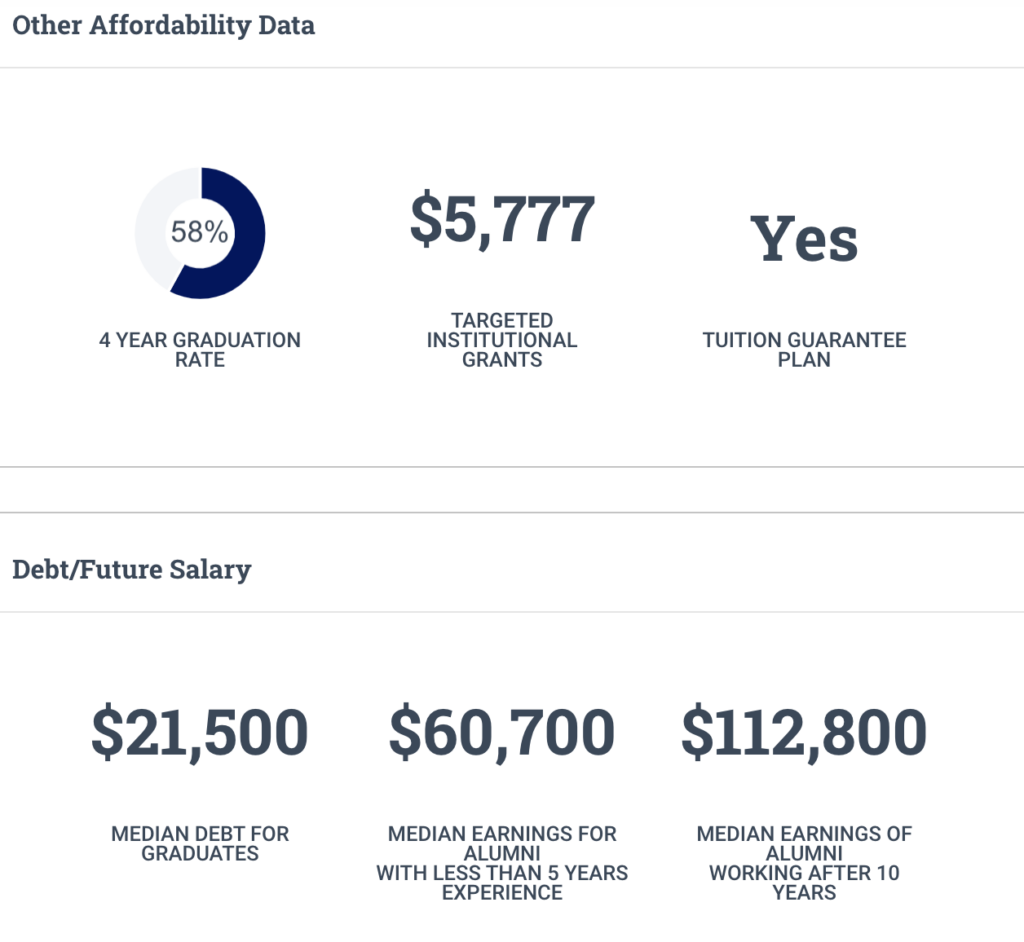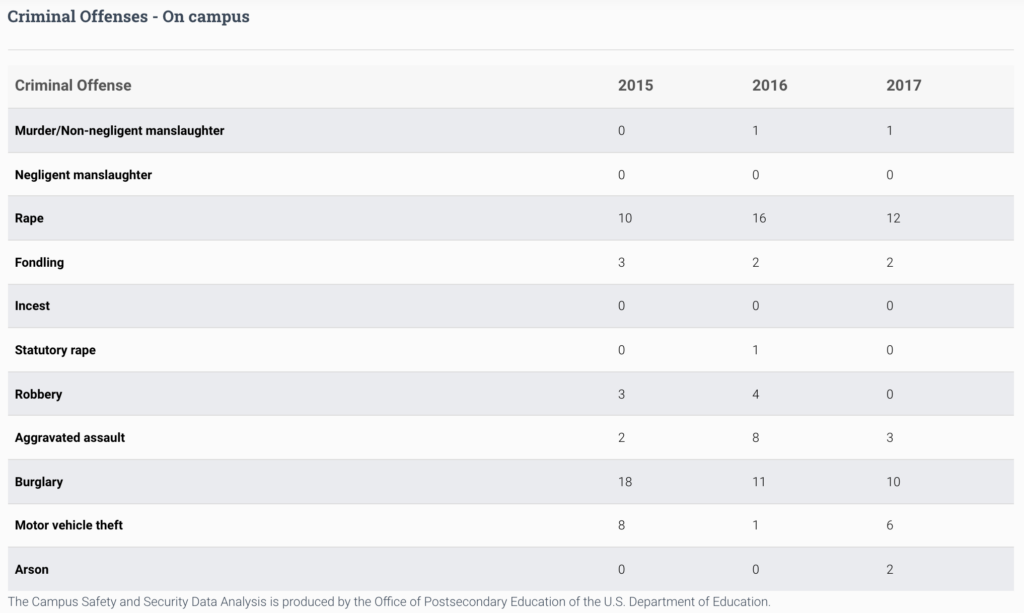
The more you know about the colleges on your big list, the easier it is to narrow down your choices. Step four in the SMART college list-building process is to research the colleges on your list.
This is SMART, a 5 part step-by-step process for Building Your College List:
1. Start Big! Your initial list should be expansive.
2. Measure your level of interest in the schools on your list.
3. Assess your acceptance likelihood and affordability for each school.
4. Research the remaining colleges on your list.
5. Trim your college list by the beginning of senior year.
You can create and track your college list with our free downloadable spreadsheet.

Academic Options
You’re going to college to get an education, so focus your research on academics first. These areas are worth investigating:
- Majors and degree programs
- Degree programs specifically in your areas of interest
- Honors programs
- Course offerings
- Options for self-designing your curriculum
- Internship and research opportunities
- AP, IB and CLEP exam credit policies
- Study abroad opportunities
- Freshman retention and graduation rates
Pro tip: You can find information on honors programs when you search for a college at MeritMore.

Post-Graduation Employment Data
College affordability is a big issue. Make sure your tuition money is being well-spent by investigating a school’s post-graduation job data. Research:
- 4-year graduation rates
- Median debt for graduates
- Median earnings for alumni with less than 5 years of experience
- Median earnings for alumni working after 10 years
Pro tip: You can easily find affordability data and a college’s post-graduation data when you search for a college at MeritMore.

Size and Location
Small and large colleges offer different opportunities for students. Measure your level of interest in attending a big or small school by taking a look at:
- Class instructors (professors or graduate students)
- Class structures and sizes
- Teacher to student ratios
- School resources
- Local internship and apprenticeship opportunities
- Weather conditions
Pro tip: Size and location often play a part in future job opportunities. Students on the East Coast can more easily find finance-related jobs. Students on the West Coast can more easily find jobs in the tech sector.
Housing and Campus Life
Housing options and campus life vary greatly between schools. Research:
- Dorm size
- Dorm allocation (lottery, seniority or something else)
- Handicap accessibility
- Meal plans
- Greek life
- Clubs and organizations
- Cultural and geographic diversity
- Safety policy
- Drug policy
Pro tip: You can find information on safety protocols by searching ‘campus safety’ on a college’s website. You can see crime stats on any college campus at MeritMore.

More Information
You can do some great research on a college’s social media accounts. Candid opinions about different schools from current students can be found on Reddit if you search by a particular college name. The more you know the easier it will be to trim your college list.
Pro tip: Organize colleges, keep track of details and see a visual breakdown of both your acceptance likelihood and affordability balance with MeritMore’s free college list spreadsheet.
